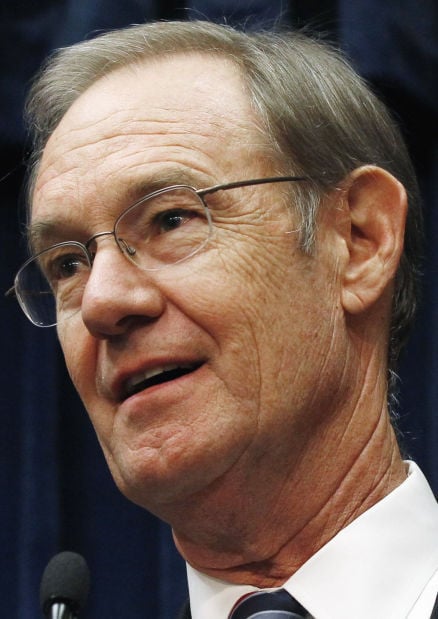PHOENIX — Organizers of a campaign to force disclosure of “dark money” in campaigns and a companion measure to open up primaries hope to collect $10 million — and possibly as much as $13 million — to put the issues on the November ballot and get them both approved.
The disclosure comes as two former gubernatorial hopefuls have formed campaign committees, a necessary legal step before they can raise money. But voters will have to wait until later this month days before actually seeing the language they hope to add to the Arizona Constitution.
Paul Johnson, who ran for governor in 1998, wants to jettison the current system of nominating and electing candidates for local, state and federal office into what comes closer to a “top two” system.
Put simply, all candidates for any office would run against each other in what is now the primary. Then the two top vote-getters would face off in a runoff.
What’s important about that is that the political affiliation of the candidates would not matter. So if the two people with the most votes were Republicans, they would advance to the general election.
Terry Goddard, who made runs for governor in 1990, 1994 and again in 2012, is crafting a proposal to close what some consider a loophole in state financial disclosure laws.
Current law requires any group that spends money to influence an election to file reports. But those organized under the federal tax code as “social welfare” organizations argue they need not disclose the sources of their money.
That permits various corporations and individuals to funnel large sums of money into TV commercials, billboards and direct mailers while leaving the targeted voters in the dark about who is interested in the race, a factor that might help voters determine how much weight to put on claims.
Some measures have been introduced at the Legislature to address the issue. But all are sponsored by Democrats, portending a likely early demise.
Campaign consultant Chuck Coughlin said total “dark money” spending in the last race reached $15 million.
In the 2014 gubernatorial race, for example, the $5 million spent on the general election directly by Republican Doug Ducey and Democrat Fred DuVal was eclipsed by the $9 million others spent trying to influence the race.
And two Republicans got elected to the Arizona Corporation Commission with $3 million spent by outside groups. Arizona Public Service Co. will neither confirm nor deny putting its own money or that of its parent company into helping influence who would be the next utility regulators.
Secretary of State Michele Reagan ran on a platform of exposing dark money, particularly after she was the target of some of that during the 2014 Republican primary. The Arizona Free Enterprise Club spent about $560,000 in a bid to help Justin Pierce.
But since her election Reagan has questioned whether it is possible to force greater disclosure. And she is even challenging efforts by the Citizens Clean Elections Commission to enact its own disclosure requirements.
Coughlin, whose firm HighGround has been involved in many races over the years, said he believes the public is hungry for more disclosure and are willing to support the measure.
“We’re going to assert a right in the constitution that Arizona voters have a right to know this information,” he said.
While Coughlin said the final language is not yet drafted, the proposal seeks to require disclosure of the source of anyone who puts at least $10,000 into any campaign in the 90 days before an election. Coughlin said it is being written in a way to catch out-of-state funds, requiring anyone who spends money in Arizona to provide a “verifiable paper trail” of the sources of all cash.
So far there is no organized opposition to the measure.
That, however, is not the case with Johnson’s plan for the top-two primary: The Arizona Republican Party already has formed its own campaign committee to raise money to kill that measure.
Johnson, who ran for governor as a Democrat but has since registered as a political independent, said the current system unfairly favors the two major parties even though there are more independents than either Republicans or Democrats.
He pointed out it takes more signatures for an independent to run for governor than as a Democrat or Republican. And Johnson said having the state run partisan primaries at taxpayer expenses is unfair.





